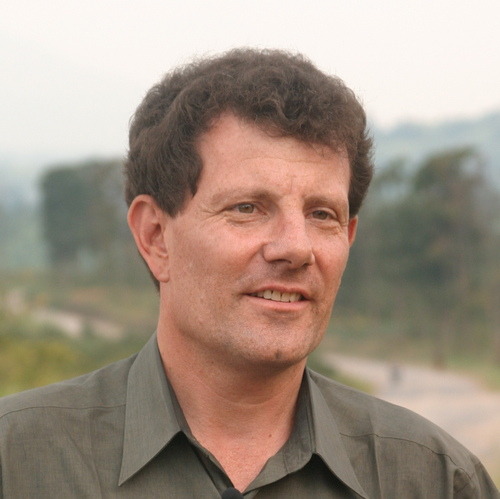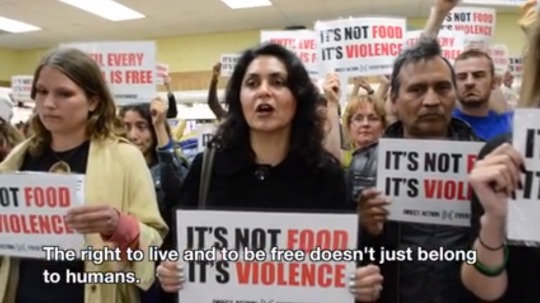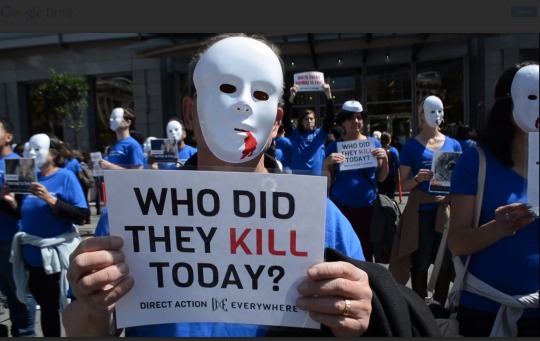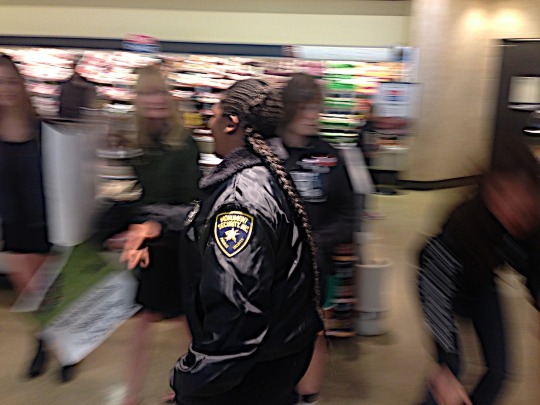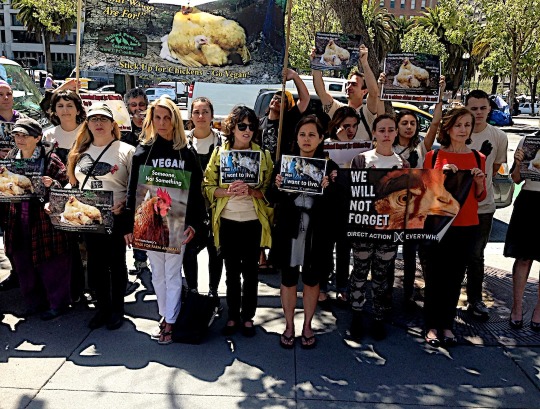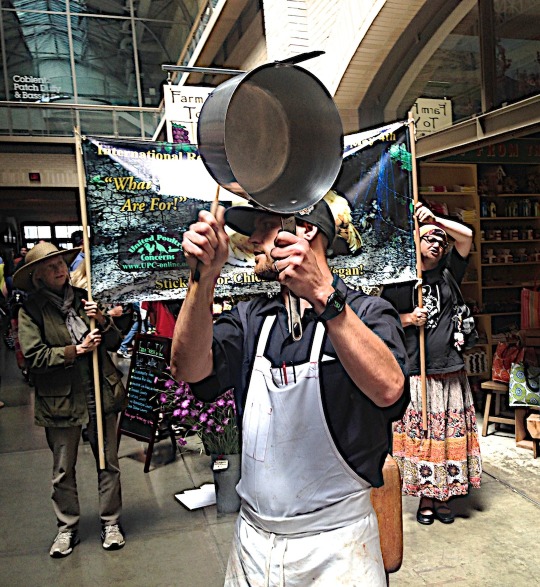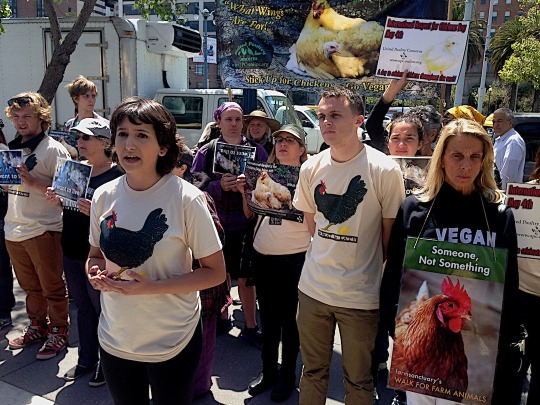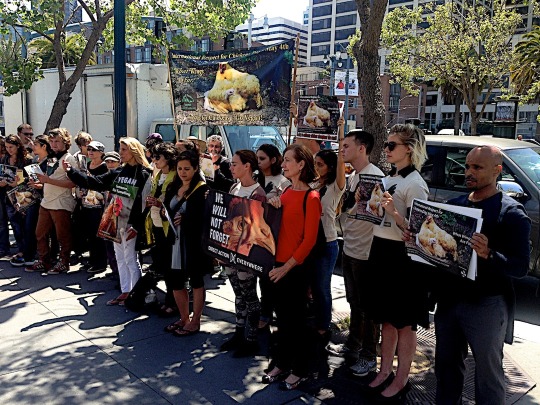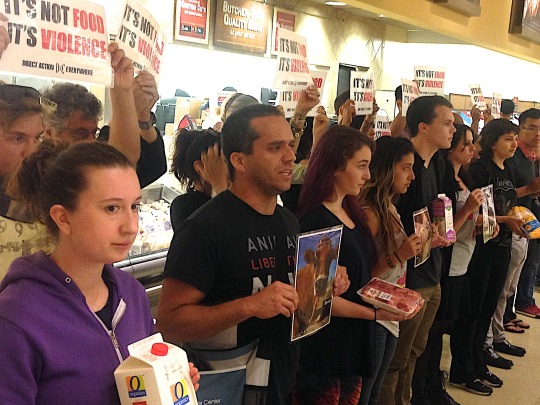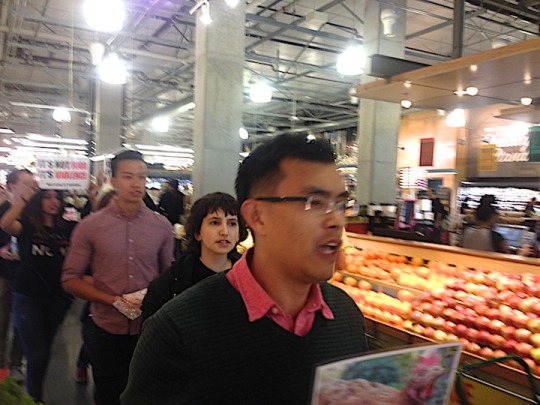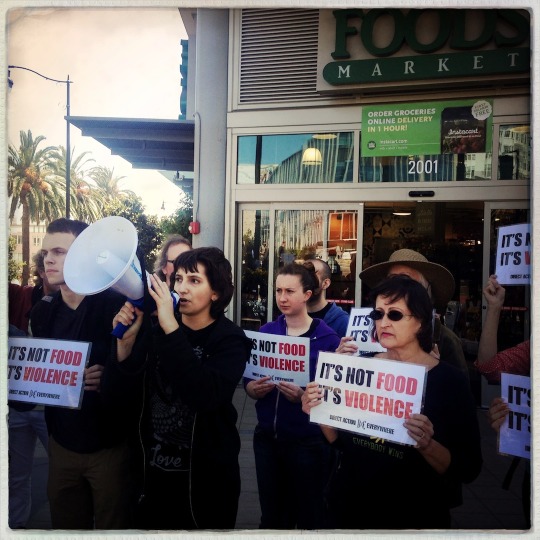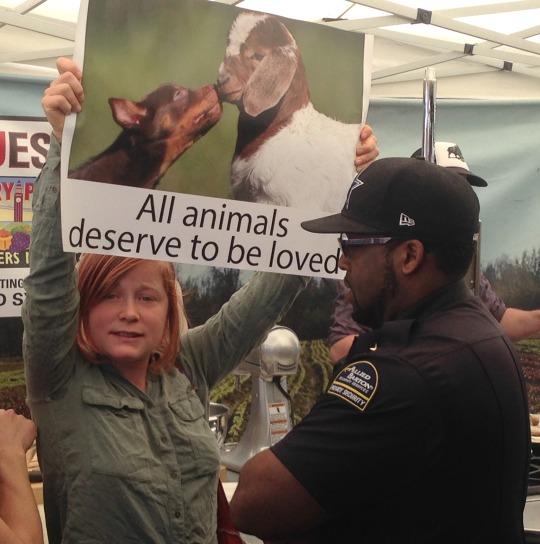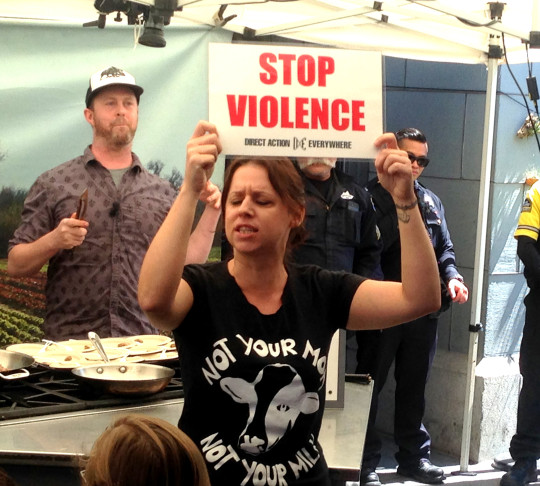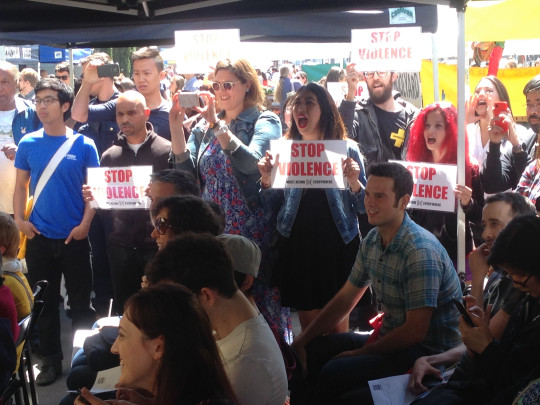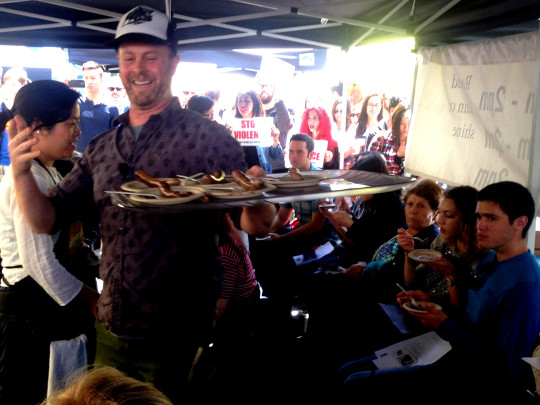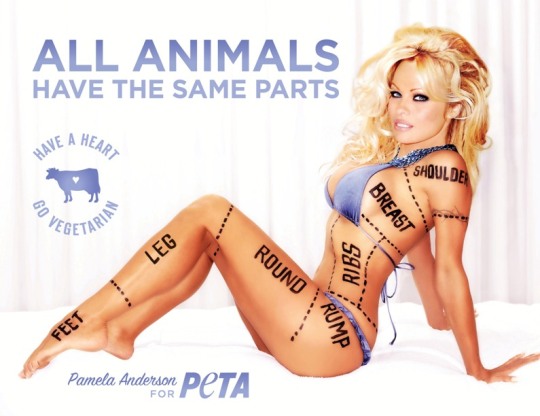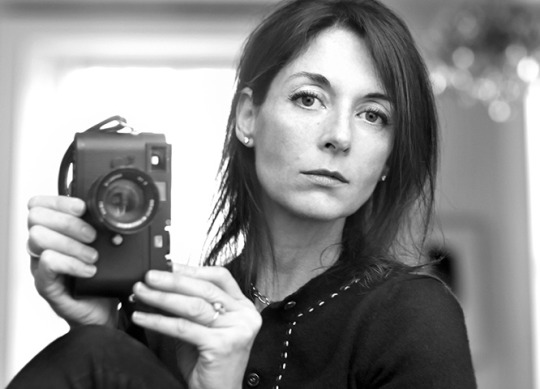
By Leslie Goldberg
Even the beautiful and rich daughter of Sir Paul McCartney of the Beatles’ fame has known the isolation of being vegetarian. Mary McCartney told the Daily Mail.com, “In a way (being a vegetarian) made me feel a little bit of an outsider. When I was at home it was perfect… but when we would go out, it would be a bit of a different story.”
She told the English online publication that meals out with friends when she was in school in the ‘80s used to turn into interrogations: “It would feel like I was being grilled about being a vegetarian. It was quite difficult. I came away feeling like, ‘Leave me alone.’ ”
God knows what it would have been like for her back then if she’d been vegan.
Mary McCartney said she doesn’t feel so bad anymore and she’s glad there are many more vegetarian foods available now.
Yes, yes, yes, there are more meatless and vegan foods available, but for many, that stereotype of the “lonely vegan” isn’t a stereotype. It’s real.
I remember one day a few years ago – I was tired and hungry, but mostly lonely. My friend and I went to grab something to eat at the Museum of Modern Art Café in San Francisco.
Since she was a long-time vegetarian and I was a relatively new vegan we’d talked about factory farming and about some of the health problems associated with eating animal foods. I tried to talk about the atrocities rampant in the egg and dairy industries. She was sort of non-committal. She wouldn’t really say where she stood on the issue of veganism but my impression was she wasn’t going to give up eggs or dairy any time soon. While there was no animosity, there was a wall between us that hadn’t been there before.
Standing in front of the café pastry counter, I guessed that nothing was vegan. I didn’t want to ask. I was sick of being the picky vegan, always focused on food, always pleading my case. I didn’t like the wall. Somehow I wanted to show her that vegans are like everybody else. I was the same person I’d been before. Fuck it. I ordered a bran muffin and a cup of coffee.
When we finally sat down, I took a bite of the thing. The taste of butter almost made me gag. I set the fork down. “Does it have butter in it?” she asked me.
I couldn’t say anything. I just nodded yes. Later, still hoping to dissolve the wall, I told her she could have the muffin if she wanted it.
Personal isolation weakens the Animal Rights Movement and maybe even our resolve to stay vegan.
My sense is, getting out of vegan solitary confinement is super important.
It can be tough because a lot of vegans are kind of loners to start with. We’re willing to stand apart from the crowd if the crowd violates our convictions. Maybe some vegans feel closer to non-human animals than human animals.
But it can get to be too much.
A lot of us need somebody to mirror back to us that we’re not crazy, strange and/or deluded. We need to know we’re not the only people horrified by the animal cruelty implicit in animal agriculture and we’re not the only people worried sick about what animal agriculture and the public’s eating habits are doing to the environment. We need to know we’re not the only people pissed off by the whole thing.
Living in the Bay Area, I go to a lot of vegan functions – veg fests, lectures, seminars, vegan group dinners. And I’m a member of some online vegan groups.
Still, the most important thing is not only having a vegan partner, but belonging to some vegan face-to-face groups (not to be confused with Facebook groups.) For two years now, we’ve gone to a wonderful twice-a- month vegan book meetup, the Marin Vegan Book Group and we belong to the local DxE chapter which gets together every week.
DxE is the first vegan group I’ve encountered which takes the problem of vegan isolation seriously. In his recent lecture titled “Why DxE?” organizer Brian Burns cited “animal rights activism of the past” as “vegan consumerism.”
He described it: “We want people (usually people we know) to change their diets,” he said. “That approach is lacking in community and has focused on incremental changes like ‘Meatless Monday’ and California’s ‘Prop 2.’ It’s ‘welfarism.’”
He talked about this activism as being nice to everybody, getting your friends to change, making sure nobody gets upset. “That leads to isolation,” he said.
No shit.
That kind of activism has also done nothing to stop the number of animals killed for food from increasing. He noted that today vegetarians are 5 percent of the population compared to 6 percent in 1999.
If you’ve been following this blog, you know that DxE is hoping to buck that trend by causing non-violent animal rights disruptions or protests. It’s kind of a “Forget changing your friends and your siblings who seem to have made it their life’s mission to disregard any and all of your suggestions. Don’t try to change friends. Change society. Change the system.
OK, that, and get together for vegan potlucks and farm sanctuary work days once in while.
And never forget “animal food” is NOT food, it’s VIOLENCE.
– A Vicious Vegan blog post –

